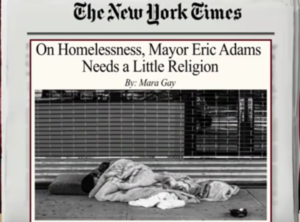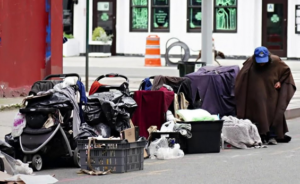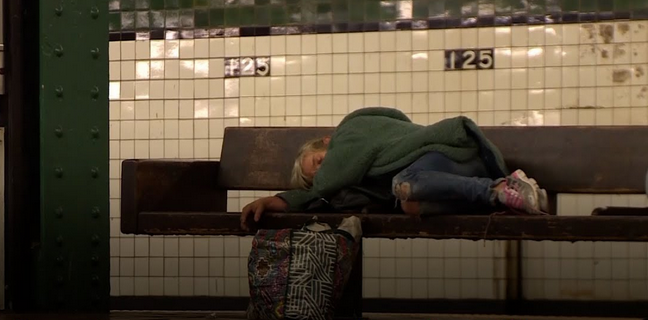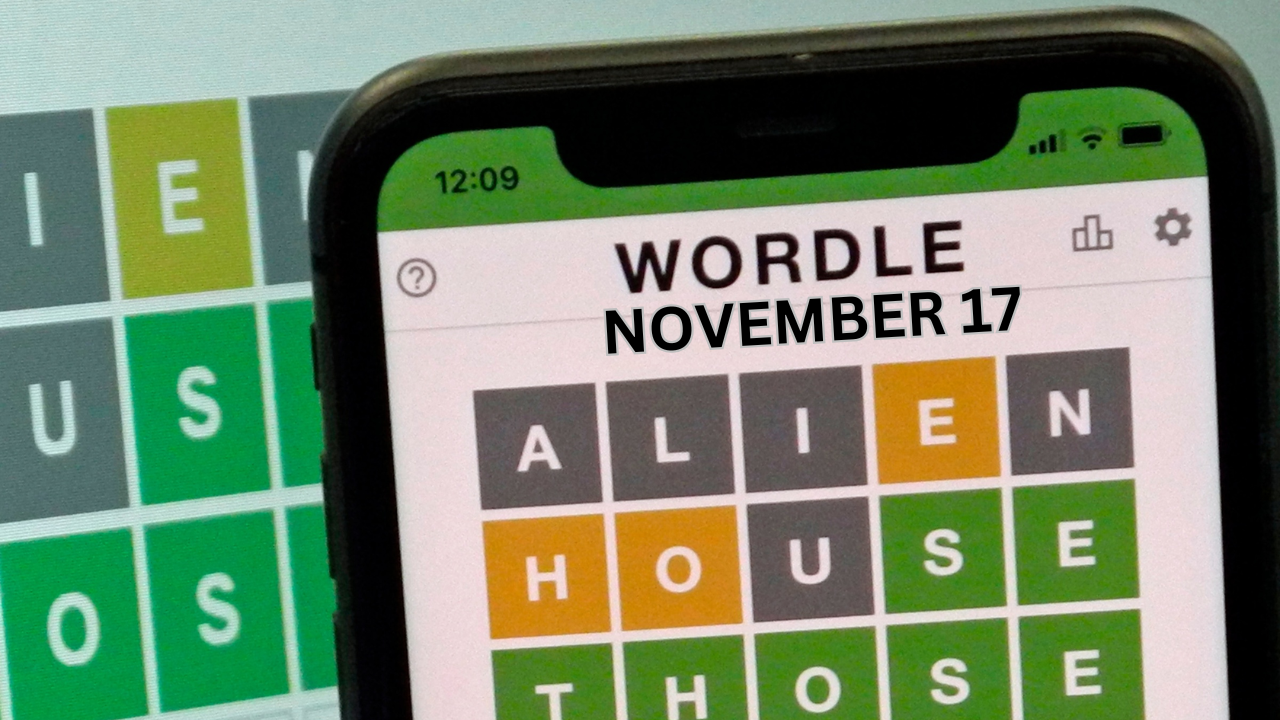Photos: YouTube Screenshots
Coalition for the Homeless released its annual State of the Homeless report, titled Compounding Crises, Failed Responses. The report evaluates the City’s and the State’s efforts to meet the needs of unsheltered New Yorkers; provide safe, appropriate, and accessible shelter to homeless households; and provide access to permanent affordable housing.

The data presented in the report evidences Mayor Adams’ and Governor Hochul’s failure to effectively address the growing housing and homelessness crisis due to poor planning, misguided strategies, insufficient investment in permanent affordable housing, and bureaucratic ineptitude, which have relegated countless New Yorkers to homelessness and left the City ill-prepared to manage the recent influx of new arrivals.
As a result, the number of individuals sleeping in shelters each night has reached an all-time high. The report shows that last year the number of homeless households receiving City rent vouchers to transition into permanent housing reached its lowest level in five years; the number of homeless single adults placed into supportive housing was the second-lowest level since 2004 (with only the previous year being marginally worse); and the number of affordable housing units and homeless set-aside units financed hit its lowest level since 2014.
This report offers a series of recommendations to guide Mayor Adams and Governor Hochul in addressing the crisis, and notably calls on Mayor Adams to commit to financing 6,000 new units of affordable housing per year for five years for homeless households and another 6,000 for extremely low-income households.
“Until the Mayor and Governor get serious about creating enough new affordable housing specifically for those who need it most, New York will continue lurching from one crisis to the next, at a terrible human cost. The City would have had far more capacity to manage the current influx of new arrivals had there been serious efforts to help homeless New Yorkers transition into permanent housing. Harassing and criminalizing unsheltered individuals, allowing bureaucratic red tape to create a purgatorial trap for people in the shelter system, ignoring the need for vastly more permanent affordable housing, and seeking to undercut New York’s bedrock legal right to shelter are, to date, the ignominious hallmarks of the current administration’s response to mass homelessness. New Yorkers deserve better,” said Dave Giffen, Executive Director at the Coalition for the Homeless.
The State of the Homeless report includes a report card that evaluates the City’s and State’s efforts in meeting the needs of unsheltered New Yorkers, providing access to shelters and permanent housing, and preventing homelessness.

Recommendations
Compounding Crises, Failed Responses also outlines key steps that the City and State can take to immediately address the growing crisis:
Helping Unsheltered New Yorkers
Mayor Adams must:
- Prohibit NYPD from responding to 311 calls requesting assistance for homeless individuals and remove NYPD from all homeless outreach functions. Calls to 311 should only result in the deployment of properly trained DHS-contracted outreach workers.
- Cease pursuing the regressive practice of increasing involuntary removals of unsheltered individuals from the transit system.
- Cease encampment-clearing operations and street sweeps and focus instead on connecting people to resources they want and will use, including low-barrier shelters and permanent housing.
- Open at least 3,000 new Safe Haven and stabilization beds in single-occupancy rooms and offer them to all unsheltered homeless individuals, with a focus on expanding the number of these facilities for women and transgender or gender-non-conforming individuals.
- Increase drop-in center capacity citywide.
- Administratively clear all summonses for “quality of life” offenses issued to people as a result of their homeless status.
Governor Hochul must:
- Immediately provide at least 1,000 additional new true “housing first” beds in New York City, adequately funded to get the job done at $50,000 per unit per year for housing and services.
Mayor Adams and Governor Hochul should together:
- Halt the deployment of additional police in response to homeless people located in transit facilities and trains.
- Reopen all inpatient psychiatric unit beds that had been diverted to COVID-19 care, and assure that all admissions, whether for observation or inpatient care, include full care management and discharge planning services.
- Expand access to low-barrier physical and mental health care, including virtual care and street medicine.
- Avoid characterizations of homeless people that stereotype them as mentally ill and violent.
Shelters
Mayor Adams must:
- Refrain from taking any actions that weaken New York City’s bedrock right to shelter.
- Reduce the City’s reliance on large congregate facilities for homeless single adults, and shift the creation of new capacity toward single-occupancy accommodations with full accessibility features for those with disabilities as well as smaller, low-barrier shelter designs such as Safe Haven shelters, which are more home-like and have better staffing for those with complex needs.
- Immediately cease placing singe adults with serious mental illnesses in congregate facilities, and allow those who are currently in congregate facilities to transfer to Safe Havens or other single room and low-density, low stimulus settings.
- Initiate the redesign of all shelter facilities with the expectation that possible future outbreaks of airborne infectious diseases will require the provision of private rooms and bathrooms for each individual or household, and with attention to the principles of safety, public health, accessibility, and individual autonomy.
- Ensure that shelters are sufficiently staffed and that staff are appropriately trained to help residents apply for and secure permanent housing.
Governor Hochul must:
- Ensure that the right to shelter, which derives from Article XVII of the New York State constitution, is recognized and adhered to throughout the state.
- Replace the grossly inadequate $45 per month personal needs allowance for those living in shelters with the standard basic needs allowance provided to all public assistance recipients.
- Reverse harmful cuts to New York City’s emergency shelter system that have resulted in the State short-changing the City by hundreds of millions of dollars over the past decade, and ensure the State shares equally with the City in the non-Federal costs of sheltering homeless families and individuals, and public assistance benefits generally.
- Help NYC with influx of new arrivals by immediately providing funds, facilities, rent vouchers, personnel, and statewide coordination of the placement of individuals and families arriving in New York.
Mayor Adams and Governor Hochul should together:
- Implement reforms to eliminate the unnecessary and inhumane bureaucratic barriers to shelter for homeless families with children and adult families.
- Increase the oversight of shelters so that maintenance and poor conditions are promptly identified and addressed, with adequate funding for cleaning staff and capital repairs.
- Ensure that shelter residents have adequate internet access for needs related to education, employment, housing searches, health care, and other critical issues by ensuring: i) that there is WiFi access in all private and common areas of all shelters, and ii) that all residents have access to computers, tablets, or other devices.
Permanent Housing and Homelessness Prevention
Mayor Adams must:
- Provide $2.5 billion in additional new construction financing each year for the next five years for apartments to specifically be built for homeless and extremely low-income New Yorkers, by:
- Doubling the set-aside in new affordable housing developments for homeless households to 30 percent in order to produce at least 6,000 new apartments per year; and
- Building an additional 6,000 apartments per year for households with extremely low incomes.
- Accelerate the creation of 15,000 City-funded supportive housing units by scheduling their completion by 2025 rather than 2030.
- Exempt agencies providing housing, homelessness prevention, and shelter services from further budget cuts so as not to worsen existing staffing shortages and administrative delays, and restore staffing levels to ensure that homeless individuals and families encounter fewer bureaucratic obstacles and are provided with the services and housing assistance they need.
- Ensure full coordination between the City’s housing and homeless services agencies so that housing investments are properly calibrated to meet the most urgent needs of homeless and extremely low-income New Yorkers.
- Improve the effectiveness of the CityFHEPS voucher program by:
- Expanding eligibility to those at risk of eviction or experiencing homelessness
- Remove the requirement that someone show they are employed;
- Changing the income threshold from 200% of the federal poverty level to 50% of the Area Median Income (AMI);
- Barring the city from deducting a portion of the total voucher amount recipients get for utility costs.
- Address the crippling bureaucratic obstacles that prevent homeless households from utilizing CityFHEPS vouchers in a timely way, including measures such as:
- Creating easily retrievable records of shelter staff’s last efforts to assist a shelter resident obtain permanent housing;
- Providing clear reasons and remedies for a unit’s failure to meet pre-clearance requirements;
- Creating the position of a trained CityFHEPS intermediary to shepherd applications through the length and complication process to completion.
- Utilize nearly $200 million in New York State Rental Supplement Program (RSP) funding that the State has already appropriated for households facing homelessness, regardless of their immigration status.
- Ensure that people who have received medical and mental health care on Rikers are released with a treatment plan and resources consistent with their needs and referred to appropriate housing
Governor Hochul must:
- Increase the monthly rent allowance for all individuals and families receiving public assistance, regardless of household composition or threat of eviction, to meet the actual cost of housing in New York City.
- Raise the Personal Needs Allowances provided to homeless individuals and families to the same amounts they would receive if they were living in permanent housing.
- Release the nearly $400 million in OTDA funds appropriated and re-appropriated in recent years to provide rent supplements, including those provided to support individuals and families regardless of immigration status.
- Establish a statewide long-term affordable housing rent subsidy similar to the Federal Housing Choice Vouchers.
- Remove all State budget appropriation restrictions on New York City’s authority to claim reimbursement for all rent subsidy, rent supplement, public assistance, or other rental assistance programs.
- Accelerate the pace of production of the 20,000 units of supportive housing pledged by former Governor Cuomo in 2016 by completing them by 2026 instead of 2031, fully fund the construction and operation of the remaining 14,000 units, and initiate a robust supportive housing preservation program to keep at least 6,000 units in service over the next 10 years.
- Expedite the development of 3,500 new OMH housing units authorized in the 2023-2024 State budget to ensure their rapid deployment to help ease the housing crisis for people with serious psychiatric disabilities.
- Enact Good Cause eviction legislation.
Mayor Adams and Governor Hochul should together:
- Provide rental vouchers to homeless and at-risk households regardless of immigration status.
- Fund the production of more housing for homeless single adults, separate and apart from existing supportive housing commitments.
- Expand access to supportive housing and other permanent housing for adult families – a population with disproportionately high levels of disability and complex needs.
- Ensure effective reentry planning for individuals being released from prisons and jails in order to identify viable housing options prior to each individual’s scheduled release date, fund the creation of supportive housing specifically for individuals reentering the community after incarceration, and prohibit housing discrimination on the basis of an arrest or conviction record. Download Report






